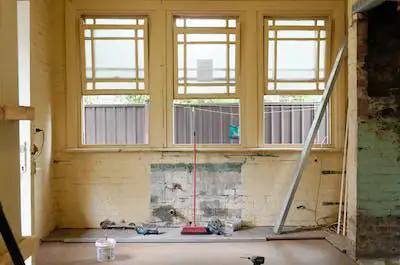Start with a Solid Foundation: Understanding Your Scope of Repair
Before embarking on your contractor search, a proper assessment of your roof's condition is crucial. This evaluation helps you:
Identify the extent of the damage: Is it a minor leak, missing shingles, or widespread deterioration? Knowing the specific issues avoids misunderstandings and ensures the contractor accurately estimates the required work.
Determine the urgency of repairs: Some leaks might necessitate immediate attention, while others might allow for a more measured approach. Prioritizing urgency helps you find contractors available to address your needs promptly.
Gather information about your roof: Note the type of roofing material (asphalt shingles, metal, etc.) and its approximate age. This information equips contractors to assess compatibility and suitability of repair materials.
Finding the Right Fit: Research and Seek Recommendations
With a clear understanding of your repair needs, it's time to explore your options. Here are some effective ways to identify potential contractors:
Word-of-mouth: Ask friends, family, and neighbors for recommendations. Personal experiences are invaluable, providing insights into a contractor's reliability, workmanship, and customer service.
Online research: Utilize platforms like Google My Business, Angie's List, and the Better Business Bureau to find local contractors and read reviews from previous clients. Pay attention to both positive and negative feedback to gain a balanced perspective.
Professional organizations: Look for contractors affiliated with reputable organizations like the National Roofing Contractors Association (NRCA) or your local roofing association. These organizations often maintain directories of qualified members.
Vetting the Contenders: Evaluating Potential Contractors
Once you have a list of potential contractors, it's time for thorough evaluation. Here are some key aspects to consider:
Licensing and insurance: Ensure the contractor possesses a valid license to operate in your area and carries liability and workers' compensation insurance. This protects you from financial responsibility in case of accidents or property damage.
Experience and expertise: Prioritize contractors with experience in repairing roofs similar to yours. Inquire about their specific knowledge of your roof's material and the types of repairs they have undertaken successfully.
Warranties and guarantees: A reputable contractor will offer warranties on both materials and workmanship. Understand the terms and duration of these warranties to ensure proper protection.
Communication and professionalism: During consultations, pay attention to the contractor's communication style. Are they clear, patient, and willing to answer your questions? Do they demonstrate professionalism in their appearance and demeanor?
Securing the Best Deal: Comparing Estimates and Contracts
After initial evaluations, gather estimates from at least three shortlisted contractors. Be wary of significantly lower estimates, as they might indicate compromised quality or hidden costs. Carefully compare the estimates, paying attention to:
Itemized breakdown of costs: Ensure the estimate clearly details the materials, labor, and any additional fees. This transparency allows for informed decision-making.
Timeline for completion: Discuss the expected timeframe for repairs and ensure it aligns with your needs and urgency.
Payment terms: Understand the payment schedule and any required upfront deposits. Opt for progressive payments tied to completion milestones for added protection.
Signing on the Dotted Line: Finalizing the Agreement
Once you've chosen the ideal contractor, ensure a smooth and secure working relationship by:
Formalizing the contract: The contract should clearly outline the scope of work, materials used, timeline, warranties, and payment terms. Both parties should sign and retain copies.
Obtaining permits: Certain repairs might require permits. Discuss permit responsibility with the contractor and ensure they handle the process if necessary.
Clear communication: Maintain open communication throughout the repair process. Address any concerns or questions promptly with the contractor.
Beyond the Repairs: Building a Lasting Relationship
Choosing the right roofing contractor is not just about fixing the immediate issue; it's about establishing a reliable partner for maintaining your roof's long-term health. By fostering a positive relationship with your chosen contractor, you gain access to:
Regular inspections and maintenance: Schedule periodic inspections to identify potential problems early on, preventing costly repairs down the line.
Expert advice and guidance: Your contractor can provide valuable insights into proper roof care and maintenance practices, extending your roof's lifespan.
Peace of mind: Knowing you have a trusted professional at your disposal for future needs brings invaluable peace of mind and protects your valuable investment

